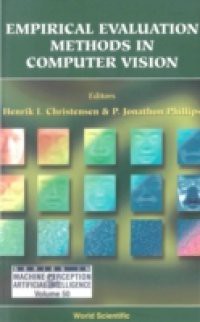This book provides comprehensive coverage of methods for the empirical evaluation of computer vision techniques. The practical use of computer vision requires empirical evaluation to ensure that the overall system has a guaranteed performance.The book contains articles that cover the design of experiments for evaluation, range image segmentation, the evaluation of face recognition and diffusion methods, image matching using correlation methods, and the performance of medical image processing algorithms.Contents:Automated Performance Evaluation of Range Image Segmentation AlgorithmsTraining/Test Data Partitioning for Empirical Performance EvaluationAnalyzing PCA-Based Face Recognition Algorithms: Eigenvector Selection and Distance MeasuresDesign of a Visual System for Detecting Natural Events by the Use of an Independent Visual Estimate: A Human Fall DetectorTask-Based Evaluation of Image Filtering Within a Class of Geometry-Driven-Diffusion AlgorithmsA Comparative Analysis of Cross-Correlation Matching Algorithms Using a Pyramidal Resolution ApproachPerformance Evaluation of Medical Image Processing AlgorithmsReadership: Students and researchers in computer vision.Key Features:Topics reviewed by a group of leading scientists from Asia, Europe, North and South AmericaOrganized around three central recurring themes which represent some current, most interesting cutting-edge research areas: the role of spatial structure in organizing biological systems and interacting populations; criticality and power law distributions; and the application of network theory for studying complex biological systems

